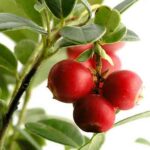 A researcher from Bangalore, India, reviewed the evidence and sees a difference between what’s seen in the lab and what’s reported in practice.
A researcher from Bangalore, India, reviewed the evidence and sees a difference between what’s seen in the lab and what’s reported in practice.
Here’s what we know.
Based on laboratory evidence
- Cranberry juice inhibits CYP (cytochrome P450) enzymes, and at higher amounts it’s as potent as the antifungals ketoconazole (Nizoral; CYP3A) and fluconazole (Diflucan; CYP2C9).
- Enzymes produced from the CYP 450 genes are involved in forming and metabolizing various molecules and chemicals in cells.
Lab data vs clinical use
- There’s a discrepancy between what’s reported in the lab and in clinical use with respect to (cyclosporine [Sandimmune], warfarin [Coumadin], flurbiprofen [Ansaid], tizanidine [Zanaflex], diclofenac [Voltaren], amoxicillin [Amoxil], ceflacor [Ceclor]).
- There’s a single report on midazolam, where there was a moderate increase in the AUC of midazolam in people pre-treated with cranberry juice.
- But another study questions this interaction.
- AUC (area under the concentration/time curve) represents the total amount of drug that reaches the circulatory system in a given time.
Potential explanations for conflicting data.
- In the lab, all anthocyanins in cranberry principles are available and have a concerted effort in CYP inhibition.
- Anthocyanins form a class of molecules called flavonoids.
- Yet, when taken by people in the community, rapid removal from the body may not permit the concentrations to rise to high enough levels to have any effect.
- It’s also possible that protein binding and/or rapid tissue uptake removes the anthrocytes from having any effect.
The bottom line?
The author concludes, “With respect to pharmacodynamic aspects, while the debate continues on the issue of an interaction between warfarin and cranberry juice, the summation of the pharmacodynamics data obtained in patients and healthy subjects… does not provide overwhelming support for the existence of a pharmacodynamic drug interaction for normal cranberry juice ingestion.”
While total avoidance of cranberry juice by warfarin users may not be warranted, according to published studies, it’s possible that consuming large quantities of cranberry juice (about 1 to 2 liters per day) or cranberry juice concentrates in supplements for greater than 3 to 4 weeks may temporally alter the effect of warfarin and should be monitored.
In most studies the problem with cranberry is not a drug interaction. Rather, many studies report low compliance and high withdrawal/dropout problems attributed to palatability/acceptability of the products, primarily the cranberry juice.
8/5/13 15:12 JR